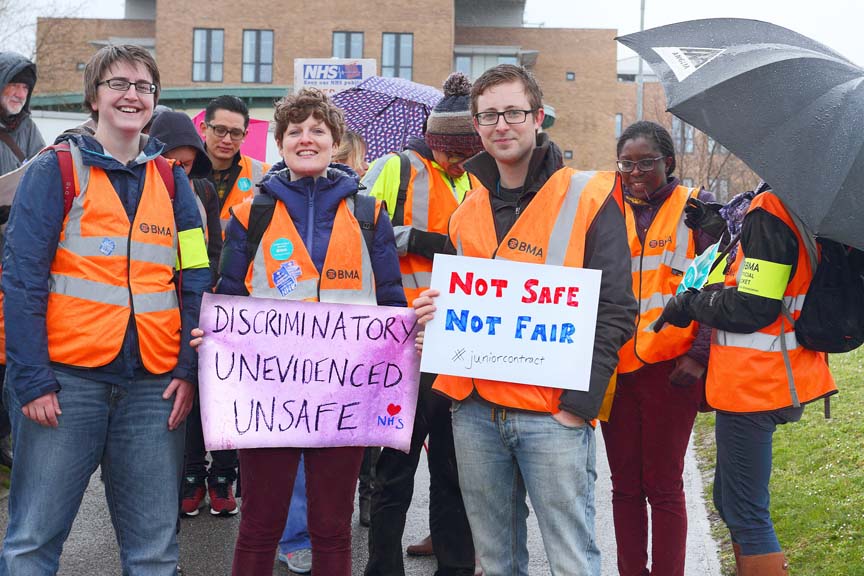MANY junior doctors feel out of their depth with the end-of-life decisions faced during Covid-19 pandemic
In normal times, end-of-life care discussions are most commonly led by senior doctors.
However, new research from a busy London hospital shows that the high numbers of deaths taking place in hospitals during the Covid-19 pandemic, frequently out-of-hours, is leading to junior (foundation level) doctors having to lead on these difficult discussions with families, often with no formal experience or training.
The study is by Dr Edmund Lodwick, King’s College Hospital NHS Trust, London, UK, and presented at this month’s Winter Scientific Meeting of the Association of Anaesthetists, held online.
He analysed the situation at Croydon University Hospital, London, where he spent his own foundation level training.
He explains: ‘During the Covid-19 pandemic Croydon University Hospital faced a high number of critically unwell patients in short period of time.
‘Unfortunately, this resulted in much greater need for discussions regarding treatment escalation and resuscitation with both patients and families.
‘It was observed that complex discussions regarding these topics were often conducted by junior doctors, and that in many cases junior doctors would be engaging in discussions that may have been deemed exceptionally challenging for even the most experienced doctors.’
These junior-level doctors had expressed concerns regarding the impact of the pandemic on resuscitation discussions, as well as a lack of postgraduate preparation for complex discussions and the difficulties of misinformation regarding resuscitation among the public.
Dr Lodwick says: ‘As the pandemic slowed, we aimed to formally assess a number of these issues, in order to understand what could be improved upon. This was deemed exceptionally important given the risk of a “second wave” and the arrival of a new cohort of junior doctors in August 2020.’
He conducted an anonymous online survey of 75 foundation doctors based at Croydon University Hospital and other doctors at equivalent level at the trust (for example international doctors doing their training there).
The response rate to the survey was 52%.
All foundation doctors surveyed had had no postgraduate training in resuscitation discussions.
Dr Lodwick explains there is currently no formal requirement for junior doctors to be specifically trained in this area.
Half of the doctors surveyed (51%) found that the pandemic increased resuscitation discussions ‘a lot’. Foundation doctors also frequently found patients to be misinformed regarding resuscitation.
Close to two thirds (62%) of foundation doctors found themselves out of their depth during resuscitation discussions ‘a lot’.
Almost all (94%) did not know of specific resources available to doctors to aid in discussions regarding resuscitation, and again almost all (97%) did not know of specific resources available to patients to clarify questions regarding resuscitation.
Dr Lodwick says: ‘The most significant finding of this audit showed the majority of respondents found themselves to be out of their depth when discussing resuscitation.
‘This is likely due to their lack of formal training and clinical experience in leading these discussions.’
He adds: ‘While further research is needed from other hospitals, it is likely this same problem is being experienced by junior doctors up and down the country.’
